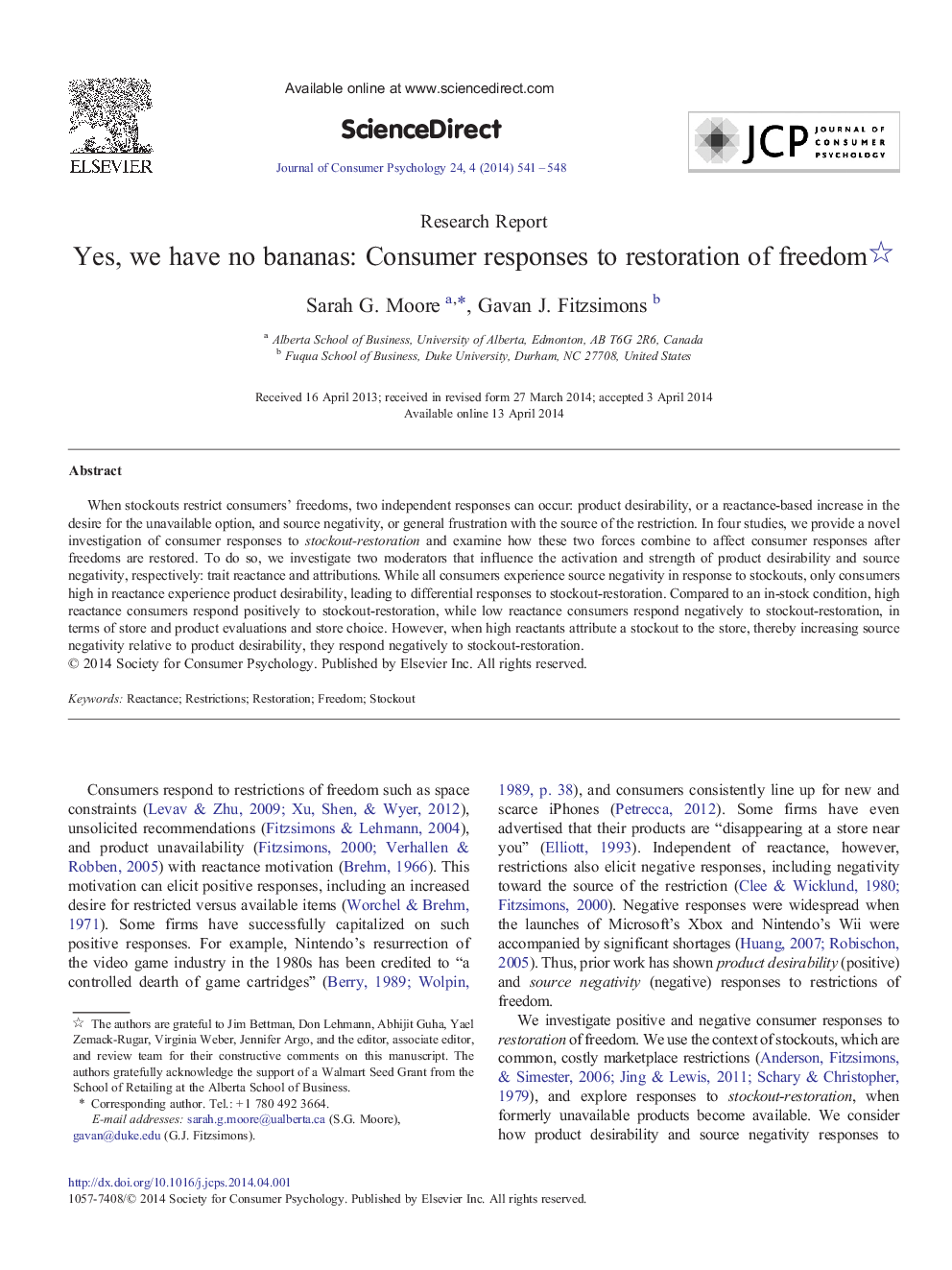| Article ID | Journal | Published Year | Pages | File Type |
|---|---|---|---|---|
| 882122 | Journal of Consumer Psychology | 2014 | 8 Pages |
When stockouts restrict consumers' freedoms, two independent responses can occur: product desirability, or a reactance-based increase in the desire for the unavailable option, and source negativity, or general frustration with the source of the restriction. In four studies, we provide a novel investigation of consumer responses to stockout-restoration and examine how these two forces combine to affect consumer responses after freedoms are restored. To do so, we investigate two moderators that influence the activation and strength of product desirability and source negativity, respectively: trait reactance and attributions. While all consumers experience source negativity in response to stockouts, only consumers high in reactance experience product desirability, leading to differential responses to stockout-restoration. Compared to an in-stock condition, high reactance consumers respond positively to stockout-restoration, while low reactance consumers respond negatively to stockout-restoration, in terms of store and product evaluations and store choice. However, when high reactants attribute a stockout to the store, thereby increasing source negativity relative to product desirability, they respond negatively to stockout-restoration.
